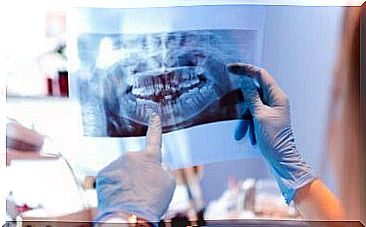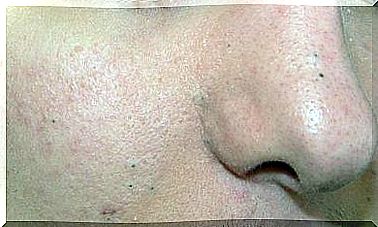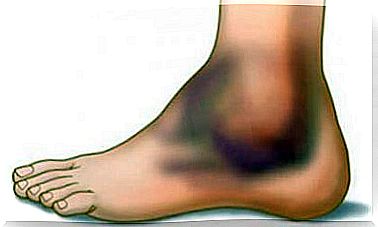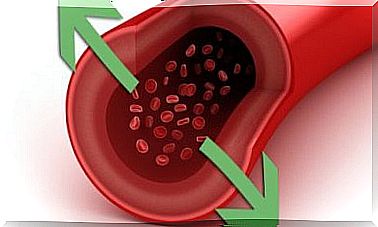Avitaminosis: Lack Of Vitamins
Without a vitamin, the body cannot function properly. What is the vitamin deficiency due to? How avitaminosis affects health? Find out the answers to these questions here!

Avitaminosis refers to the total absence of vitamins in the body. However, this scenario is very rare. It is then preferable to speak of hypovitaminosis, a term which designates a partial deficiency of vitamins in the body.
Vitamins are nutrients necessary for our body. If our diet is not varied or balanced, in other words if it does not include all food groups, then it is likely that we are not meeting our daily nutritional needs.
Causes of vitamin deficiency
Our body needs relatively small doses of vitamins compared to the doses of protein or carbohydrates it needs. And yet, many of us do not meet all of our vitamin needs.
An unbalanced diet with severe restrictions

This type of diet prevents the body from supplying the body with the correct vitamin intake.
An unbalanced diet can be due to external circumstances : famine, drought, conflict in the context of war or displacement of refugees. But it can also be due to self-imposed limitations: very strict diet without professional monitoring, elimination of certain basic food groups, inadequate dietary habits that are maintained over time …
An increase in nutritional needs
Certain particular situations imply greater nutritional needs such as the period of breastfeeding, a rapid stage of development or a season of intense physical activity.
In these cases, the need for vitamins is greater. This means that even if your diet is already healthy and balanced, it is very possible that you are suffering from a vitamin deficiency, or a vitamin deficiency.
An increase in losses preventing the correct absorption of vitamins
This can be a problem if the situation continues.
This problem particularly concerns those who have chronic diarrhea because of a disease such as celiac disease, inflammatory bowel disease or even food intolerances.
The tobacco
As noted in the study published in the medical journal American Journal of Public Health, this habit usually destroys much of the vitamin C.
It is therefore strongly recommended that smokers increase their consumption of vitamin C.
Alcoholism
According to a publication in the International Journal for Vitamin and Nutrition Research, many patients suffer from both chronic alcoholism and malnutrition, either because they consume fewer essential nutrients or because alcohol prevents absorption into the body. vitamins and proper digestion.
Vitamins

Vitamins activate and stimulate virtually all biochemical activities in the body. These are necessary for living and enjoying good health.
The thirteen essential vitamins fall into two groups:
- Water soluble vitamins are those that dissolve in water. It must be consumed daily, because they are evacuated quickly
- Fat soluble vitamins are those that do not dissolve in water. The body is able to store them for weeks or months
Avitaminosis and water-soluble vitamins
- Ascorbic acid or vitamin C: a deficiency in vitamin C can cause oral, dermatological and capillary alterations as well as an increase in fractures. It is also the cause of scurvy syndrome
- Thiamine or vitamin B1: a deficiency in vitamin B1 causes various manifestations: neurological disorders, cardiovascular disorders and psychiatric disorders. Beriberi and Wernicke-Korsakoff syndrome are clinical pictures caused by vitamin B1 deficiency
- Riboflavin or vitamin B2: a deficiency in vitamin B2 causes alterations in the mucous membranes, especially those of the mouth and eyes. Other possible symptoms are: inflammation of the tongue, dry eyes and persistent tearing
- Niacin or vitamin B3: a deficiency in vitamin B3 leads to gastrointestinal, dermatological alterations and dementia. This deficiency is also the cause of pellagra
- Pantothenic acid or vitamin B5: a deficiency in vitamin B5 can cause dermatological, digestive and neurological damage
- Pyridoxine or vitamin B6: a deficiency in vitamin B6 can cause anemia as well as neurological, nervous and digestive problems
- Folic acid or vitamin B9: A deficiency of vitamin B9 can cause megaloblastic anemia. This vitamin is fundamental for fetal maturation
- Biotin or vitamin B8: a deficiency in vitamin B8 can cause seizures, alopecia, dermatitis and delayed psychomotor development
- Cobalamin or vitamin B12: a deficiency of vitamin B12 can cause pernicious anemia, neuromuscular problems and blood problems
Avitaminosis and fat-soluble vitamins
- Vitamin A: This vitamin is very important for the eyesight. Vitamin A deficiency is the cause of night blindness. This deficiency also damages the immune system
- Vitamin D: Vitamin D deficiency is one of the most common deficiencies. Vitamin D is important for bone health and for reducing the risk of fractures
- Vitamin K: Vitamin K deficiency is the cause of hemorrhagic disease in newborns. But also hemorrhages in adults
- Vitamin E: the main symptoms of vitamin E deficiency are hemolytic anemia and neurological deficits
To fill vitamin deficiencies, it is essential to eat a varied diet that includes all food groups.
In the event that you cannot cover all of your vitamin needs with the diet, it is possible to resort to dietary supplements. But it is essential to consult a doctor beforehand.









